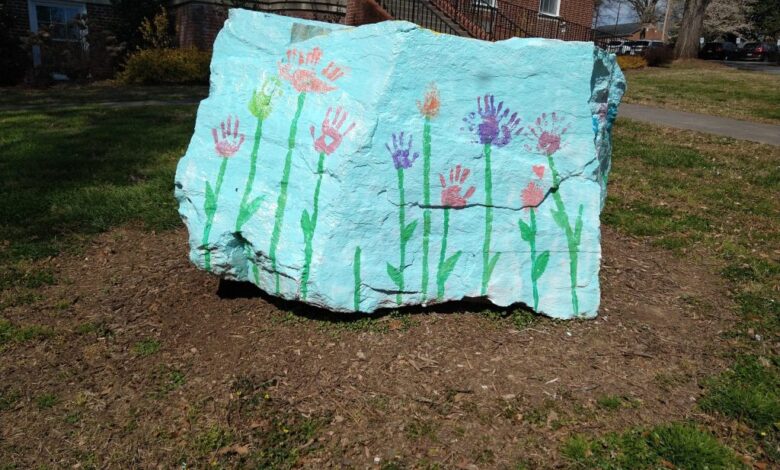Bridging Families foster program expands in NC


By Jennifer Fernandez
Last month, 27-year-old Maggie took her three kids to a doctor’s appointment. She’s generally around when they get off the bus, and she helps with their homework and with setting everything up for the next day. She also helps with serving dinner and is there when it’s time to put the children to bed most nights.
But Maggie doesn’t actually live with her children. Instead, she does most of these activities at the Mitchell County home where the kids live with Kirk and Leslie Duclos, their foster parents.
Maggie, who asked that her last name not be used to protect her family’s privacy, is part of the Bridging Families program started by Crossnore Communities for Children. Crossnore, an Avery County institution started a century ago as an orphanage, has more recently expanded its overall mission of providing child welfare services like foster care and adoption, trauma-based therapy and youth independent living programs.
Crossnore’s Bridging Families program offers siblings who are entering foster care a chance to stay together and pairs them with “professional parents” who work toward reuniting the children with their families.
“Each family that has discharged is leaving toward permanency, toward a forever home — more with their family than adoption, but some of them have been adopted,” Sarah Norris, Crossnore’s chief program officer, said.
Now, a grant and a contract are helping Bridging Families expand.

A two-year, $1.8 million contract with North Carolina’s Department of Health and Human Services will let Crossnore add more homes and staff. (The state initially funded a pilot program with Crossnore in 2023.) In addition, a $3.75 million grant from The Leon Levine Foundation will establish the Bridging Families Institute, which will help other areas of the state replicate the program.
The idea is to help more families like Maggie’s.
Before Bridging Families, Maggie said she only saw her children an hour a week. The visit had to be in public, with a county Department of Social Services worker present. They often met at a playground where the kids played, so she didn’t get to interact with them much.
“Now, almost every day I get to visit them,” she said. “And it’s not like they’re just trying to take your kids and put them in foster care. … They’re just really trying to help your family be back together.”
Foster families needed
Thousands of children get placed with foster families every year in North Carolina — usually if their living conditions are deemed unsafe or their parents are unable to care for them for various reasons, such as drug use or other health issues. The ultimate goal is to reunite families, although that is not always possible.
About 10,900 children were in foster care last year in the state, according to DSS data cited by the Children’s Home Society of North Carolina.
Finding families who can foster children has gotten more and more difficult, and finding placement for sibling groups has always been a challenge that’s only become harder. The number of foster parents in North Carolina — and nationally — has been declining for multiple reasons, the Children’s Home Society said. Families stopped fostering during the COVID-19 pandemic over fears about the disease, as well as the challenges of managing more children while schools were closed, the organization said. Lack of support, lengthy court processes and the licensing process may have also played a role in the decrease, according to the Children’s Home Society.
To make things more complicated, more children are coming into foster care with mental health and behavioral health issues, a Nevada Child and Family Services official told NPR.
Through Bridging Families, the children get professional mental health services, medical services, case management and educational help. The parents get an organized structure for working with the program’s professional foster parents, who act as a bridge between the children and their natural parents as the family goes through the program. The biological parents also receive coaching and complete a parenting skills curriculum.
Because many families have experienced trauma, the Bridging Families participants also get training on how to cope and rebuild nurturing relationships. The biological families get family therapy and spend more time together in a natural home setting.
The training for the professional foster parents is ongoing, with sessions about every two weeks on various topics, Leslie Duclos said. They meet with other Bridging Families foster parents in the training and share what is working or not working for them, she said.
Making a home

Maggie’s three children live with the Ducloses in the Phillips House, a private home owned by Crossnore in Mitchell County that is near the organization’s Avery County campus.
The Ducloses initially spent about six months as part of Crossnore’s residential foster program, where multiple children from different families live together in cottages on the Avery County home campus. The Ducloses have been with Bridging Families for a year and a half.
Leslie Duclos had been a foster parent before. When she heard about Bridging Families, she said, she knew she wanted to be a part of it.
“The fact that you’re with the kids 24/7, you work with the parents and the kids, and there’s a light at the end of the tunnel in Bridging — where you’re working to reunite the kids with the family.”
When they were residential foster parents at Crossnore, the Ducloses would alternate a week “on” as house parents, with a weeklong break when another couple took over. They didn’t really interact with the children’s parents and only saw social workers when there was an issue, Kirk Duclos said.
Bridging Families takes a different approach altogether, allowing foster parents to work closely with the children’s parents, the court system and Department of Social Services, he said.
With Bridging Families, they’re able to make connections they couldn’t as residential or typical foster parents.
“We’re just the family, you know, the kids and us and the parents,” Leslie Duclos said. “We’re all working for the same end goal … for kids to go back home.”
Lasting connections
The professional foster parents often stay connected with the families after reunification because they form such close bonds, Norris said.
One mother, who struggled with grief and depression, was eventually reunited with her four children who had spent some time with a professional foster parent couple. Staff continued to work with her once she went home with her children, and that’s “been very successful,” Norris said.
The professional foster parent couple for those children ended up having their own baby — the mother they had worked with attended the baby shower.
There have been a couple of situations where the children who came into care were not connected with their fathers. Through Bridging Families, the fathers “became engaged and involved” and they were able to reunite, Norris said.
“We were able to help bring those dads into the picture,” she said.
So far, Bridging Families has worked with 59 children from 21 families. There are 11 homes available to house children.
Maggie and her kids are the third family that the Ducloses have worked with through the program. The previous families had six children each. They were able to complete the program in about eight or nine months and reunite with their children, Leslie Duclos said.
That’s about how long most families have been staying in the program, Norris said. Crossnore had expected nine- to 12-month stays on average, but it has been more like six to nine months.
“We’re not discharging from the program without thinking about that permanency plan,” Norris said. “So if it’s reunification, great, and if it can’t be, then … we’re going to find that adoptive home, and then that’s where they’re going to go. We’re not just going to … find another foster home for them to stay in.”
Expansion plans
Crossnore started Bridging Families with one home in Avery County in 2021.
The program now includes five homes in Avery County with a sixth that can be added, three in Winston-Salem with a fourth to potentially open by summer, two in Henderson County and one in Polk County.
Crossnore also signed leases for two homes in Cherokee County and has several leads for homes in the region around Charlotte, Norris said.
Expansion to the eastern part of the state will be through the new Bridging Families Institute and partner agencies there, she said. Crossnore will provide coaching, training and consulting.
Norris said the plan is to have Bridging Families become an evidence-based model. The Bridging Families Institute will allow Crossnore to gather data from other organizations using the model.
“Maybe one day it could also be a program that is in other states as well,” she said.
Norris said they’ve gotten great feedback on the program. When they talk to people about it, they seem to understand, and say Bridging Families makes sense, she said.
“We’ll … spend a lot of time talking about the system, the crisis, and why that sort of led to the necessity that we … create this program,” she said.
Going solo
Maggie’s lawyer and social worker connected her with Bridging Families. She hadn’t heard of the program, but she was familiar with Crossnore; she spent time herself in one of the organization’s foster homes when she was a child.
“I wish they had [Bridging Families] with my parents, so they would have learned better,” she said, “because I’ve been learning every day from Leslie and Kirk.”
Maggie moved from Boone to Mitchell County to be closer to her sons, who are 6 and 4, and her 2-year-old daughter. They’ve been in foster care with the Ducloses since February. Before that, the boys were with one foster family and Maggie’s daughter was with another.
About two-thirds of children in foster care in the United States have at least one other sibling also in foster care, according to AdoptUSKids, a project funded through the U.S. Children’s Bureau. Many of them end up separated, often because there aren’t enough foster families who can take in multiple children at a time. It’s one of the reasons Crossnore created Bridging Families.
“It’s definitely much better for all the children being together,” Kirk Duclos said.
The next step is to get the courts to approve unsupervised visitation for Maggie and the children. They’re hoping to get that done this month.
It will be great to have that time with her children, Maggie said. She appreciates what Bridging Families, and the Ducloses, have done for all of them.
“Every day I get help, and I learn things every day how to improve,” she said.
The post Bridging Families foster program expands in NC appeared first on North Carolina Health News.

